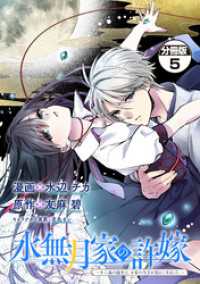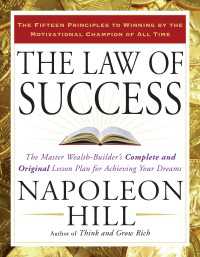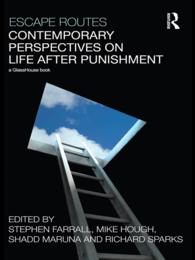- ホーム
- > 洋書
- > 英文書
- > Literary Criticism
Full Description
Who Is a Muslim? argues that modern Urdu literature, from its inception in colonial institutions such as Fort William College, Calcutta, to its dominant iterations in contemporary Pakistan—popular novels, short stories, television serials—is formed around a question that is and historically has been at the core of early modern and modern Western literatures. The question "Who is a Muslim?," a constant concern within eighteenth-century literary and scholarly orientalist texts, the English oriental tale chief among them, takes on new and dangerous meanings once it travels to the North-Indian colony, and later to the newly formed Pakistan. A literary-historical study spanning some three centuries, this book argues that the idea of an Urdu canon, far from secular or progressive, has been shaped as the authority designate around the intertwined questions of piety, national identity, and citizenship.
Contents
Note on Transliteration ix
Introduction: Who Is a Muslim? 1
1 Mahometan/Muslim: The Chronotope of the Oriental Tale 21
2 Hindustani/Urdu: The Oriental Tale in the Colony 53
3 Nation/Qaum: The "Musalmans" of India 87
4 Martyr/Mujāhid: Muslim Origins and the Modern Urdu Novel 126
5 Modern/Mecca: Populist Piety in the Contemporary Urdu Novel 165
Epilogue: Us, People / People Like Us: Fehmida Riaz and a Secular Subjectivity in Urdu 209
Acknowledgments 221
Notes 225
Index 255








